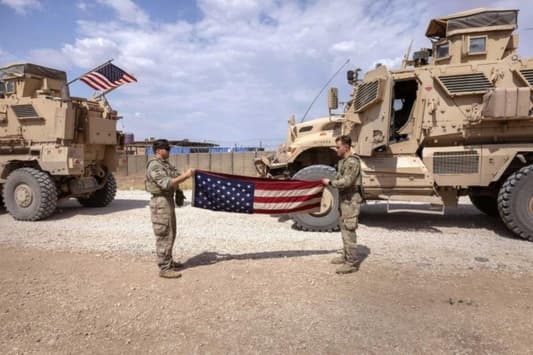Context:
President Joe Biden stated in a release that the attacks were carried out by “militant groups with ties to Iran” operating in Syria and Iraq. The group known as the Islamic Resistance of Iraq has asserted responsibility for the deaths of three U.S. soldiers in Jordan.
Background
- The Islamic Resistance of Iraq (IRI) is a newly created group of Iran-backed militias.
- It is part of the ‘Axis of Resistance,’ representing Iran’s anti-Western and anti-USA stance.
- Analysts suggest that the IRI is a front for Iranian-backed factions within the umbrella of militias known as Hashd al-Shaabi.
- Hashd al-Shaabi militias are powerful military and political forces with tens of thousands of fighters, integrated into the state.
Operations and Attacks
- The IRI has been implicated in repeated assaults on US forces in Iraq and Syria.
- It is involved in the ‘Axis of Resistance’ and participated in strikes into Syria during the October 2023 conflict between Israel and Hamas.
- The group claimed responsibility for a drone attack on Harir Air Base in Iraqi Kurdistan.
- Reports indicate more than 60 attacks on American military installations in Iraq and over 90 in Syria using drones, rockets, mortars, and ballistic missiles.
- The IRI has launched explosive drone attacks in Syria, “occupied Palestine,” and targeted bases housing U.S. troops in Iraq and Syria.
Regional Dynamics
- In response to the Israeli offensive in Gaza, Iran-backed groups like Hezbollah and the Houthis launched counter-attacks in solidarity with Palestine.
- Houthis targeted ships in the Red Sea, leading to strikes by the US and UK in Yemen.
- Concerns about the widening conflict’s potential to escalate into a full-blown war due to regional, religious, and ethnic rivalries in the Middle East and the involvement of powerful non-state actors.
Political Reactions
- Some Republican politicians criticize the Biden administration for perceived vulnerability, advocating for military retaliation against Iran’s terrorist forces.
- Former President Donald Trump attributes the attacks to Biden’s weakness and surrender.
- Analysts express concerns about the risk of a broader war given regional complexities and the involvement of various actors.
Concerns
- Ongoing attacks and counter-attacks raise fears of an escalating conflict.
- The potential for a full-blown war is heightened by regional rivalries, religious tensions, and involvement of powerful non-state actors.
Also Read:
UNRWA (United Nations Relief and Works Agency for Palestinian Refugees)

